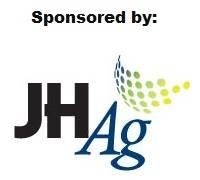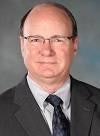Successful antibiotic-free poultry production necessitates re-evaluation of every aspect of live flock production. Each segment of the operation, must work toward the common goal and understand the importance of their responsibilities. This presentation covers the primary factors that must be addressed to successfully implement a successful antibiotic-free poultry program. There is no single program that will work across the board. Close husbandry of the birds is the key element to success, along with open communication among all parties. Realize that this is a learning process and be willing to adopt new ways of doing your job.

WHAT YOU’LL LEARN:
- The role of team members throughout antibiotic-free production
- Why antibiotic-free production increases the complexity of daily operations, especially for personnel in direct contact with birds
- The significant role husbandry plays in successful antibiotic-free operations
This webinar is sponsored by Jones Hamilton and presented by WATT Global Media.
Speaker Info:

John Carey has been active in the Poultry Science Association (PSA) since 1976. He has served as a past president as well as associate editor of Poultry Science and the Journal of Applied Poultry Research, as section editor of Poultry Science, and as a Federation of Animal Science Societies (FASS) board member. He is currently serving as a PSA Foundation Board member and as the FASS treasurer. He has been a member or chair of numerous committees for PSA and the USA branch of the WPSA. He earned his Master of Science from South Dakota State University in 1979 and his PhD from Kansas State University in 1982. From 1982 to 1989, he was a member of the faculty in the Poultry Science Department at North Carolina State University. From 1989 to the present, he has been a faculty member of the Department of Poultry Science at Texas A&M University, serving as associate department head and extension program leader from 1993–2006 and as department head from 2006–2012. He is currently engaged in undergraduate teaching and conducting laying hen and broiler production research, and also serves as Editor-in-Chief of the Journal of Applied Poultry Research.

Dr. Andres Montoya is a Technical Services Poultry Veterinarian for Merck Animal Health in the United States. He has over 10 years of field technical support experiences in the allied industry where he works closely with poultry producers providing technical services and support to help to identify problems and provide effective solutions. His role and previous jobs also encompasses occasional international travels bringing a wider perspective to his knowledge of the poultry production systems. He received his DVM degree from University of La Salle Bogotá, Colombia. Dr. Montoya earned a Master’s degree in Preventive of Veterinary Medicine at the University of California at Davis. He then completed residency training at University of California at Davis with a focus in poultry medicine. He served as Assistant Professor in the Department of Population Health and Reproduction at the College of Veterinary Medicine at University of California at Davis. Dr. Montoya also received a Master’s degree in Avian Medicine at University of Georgia. Dr. Montoya is a Diplomate of the American College of Poultry Veterinarian, and a member of the American Veterinary Medical Association, the American Association of Avian Pathologist, and the Professional Animal Auditor Certification Organization. Prior to Merck Animal Health, he worked in Novus International and AB Vista North America Poultry Business Unit.